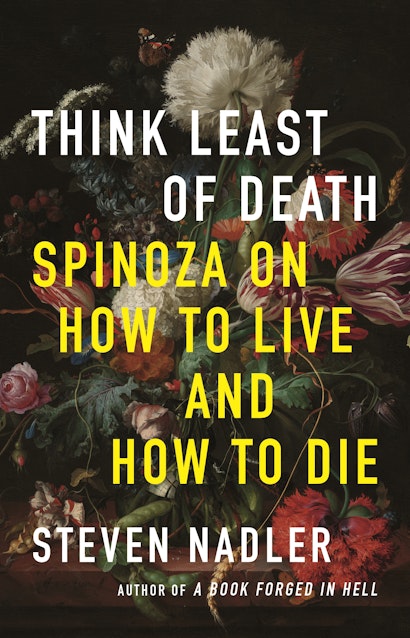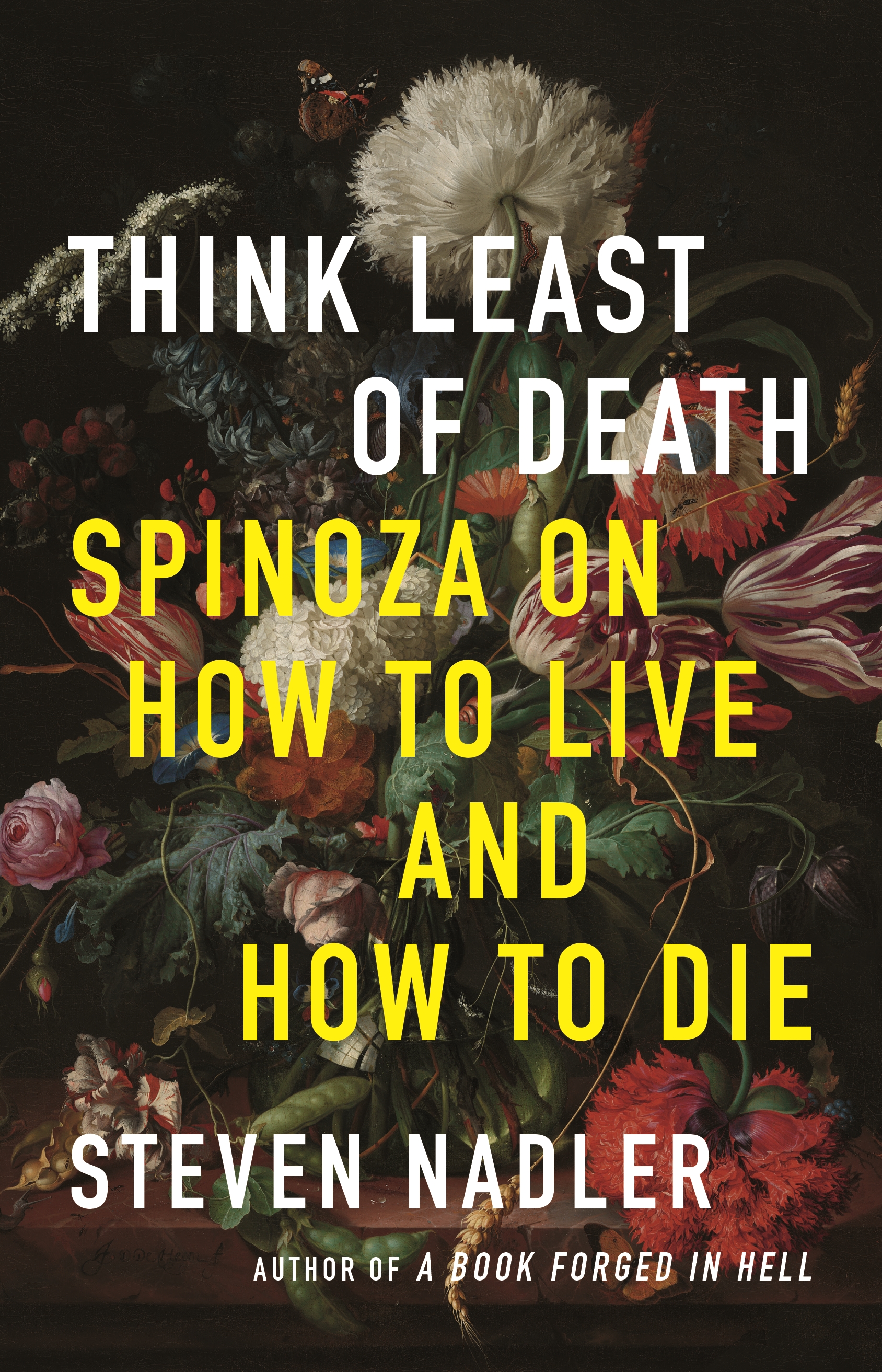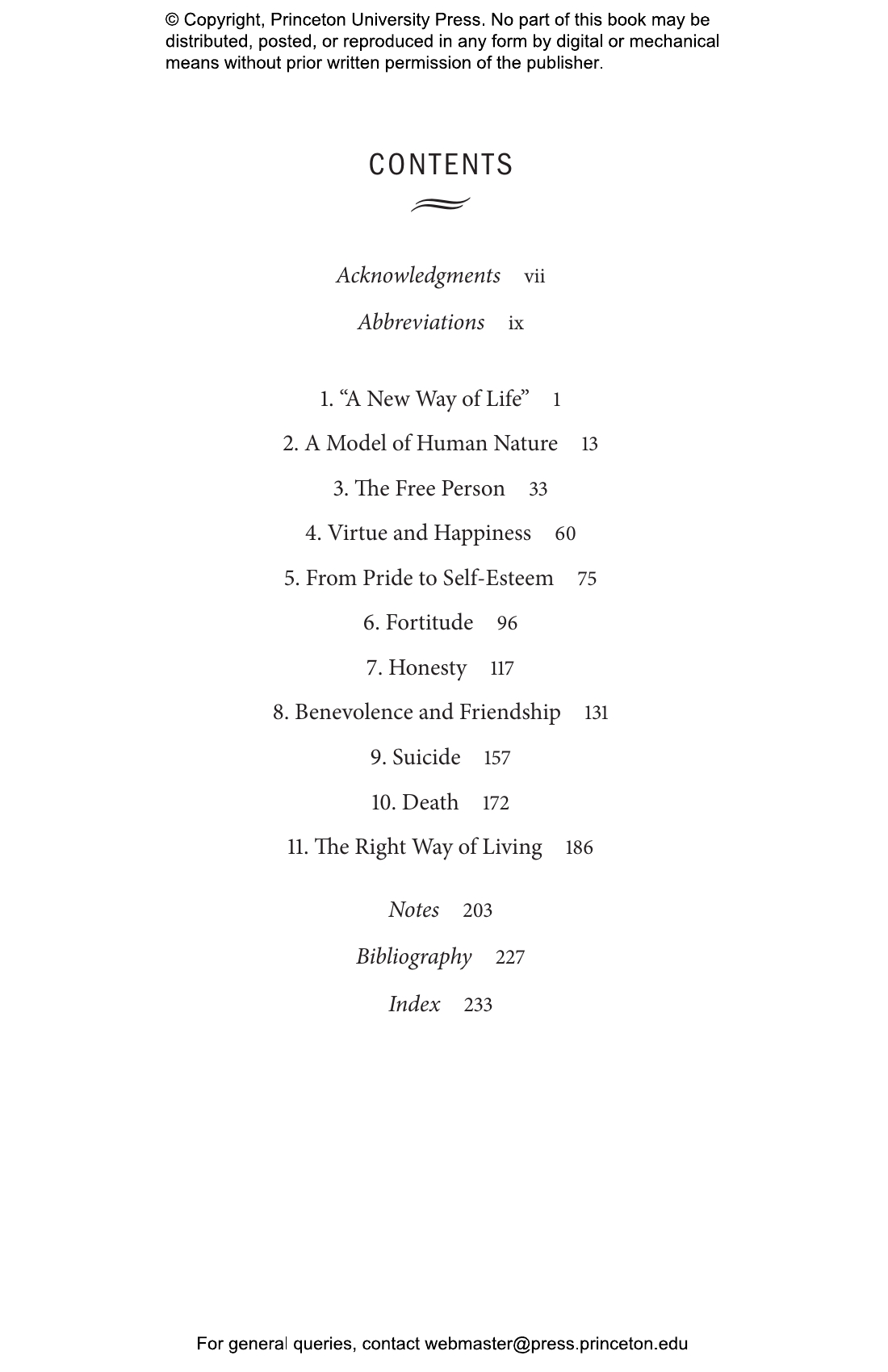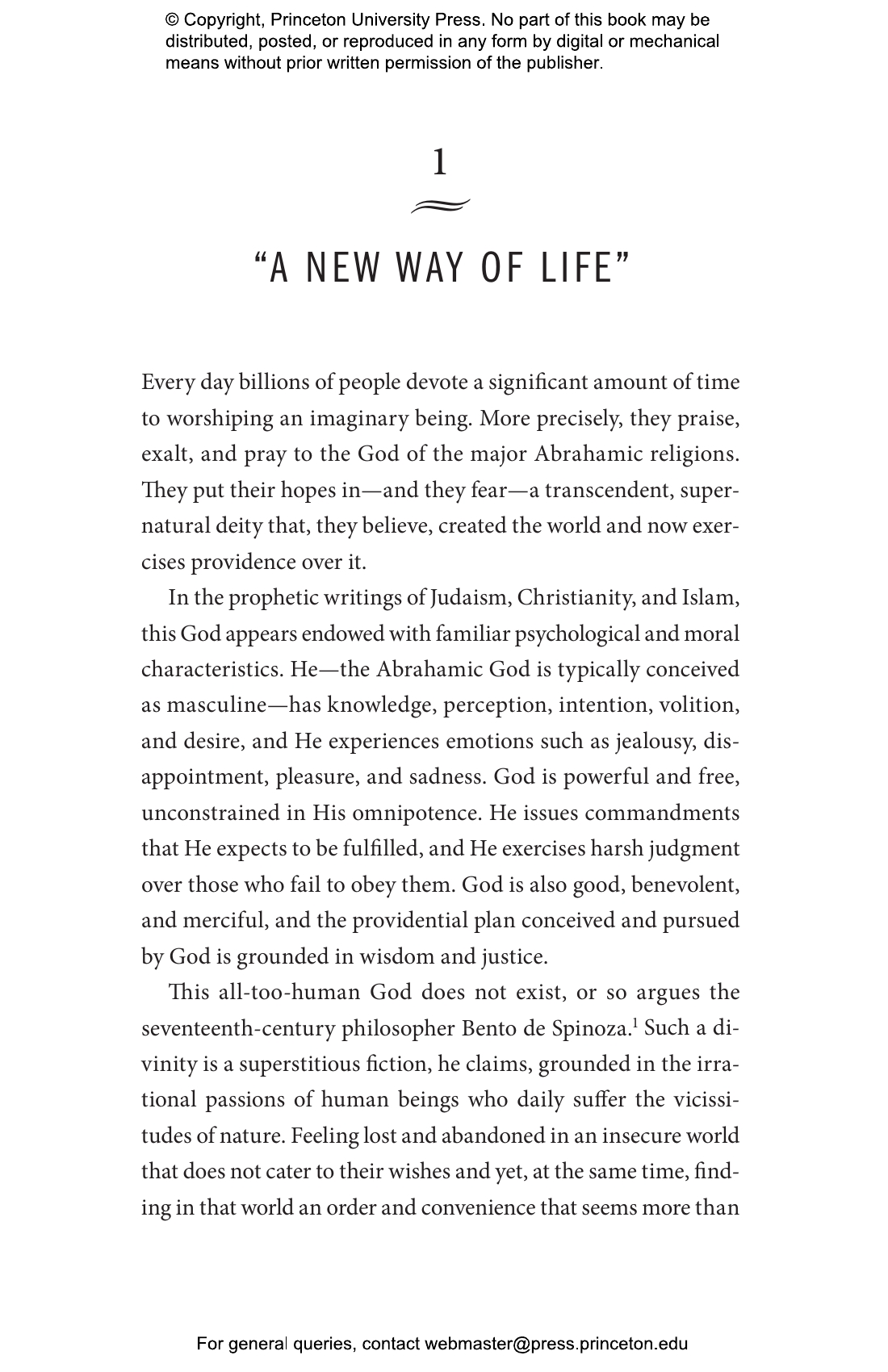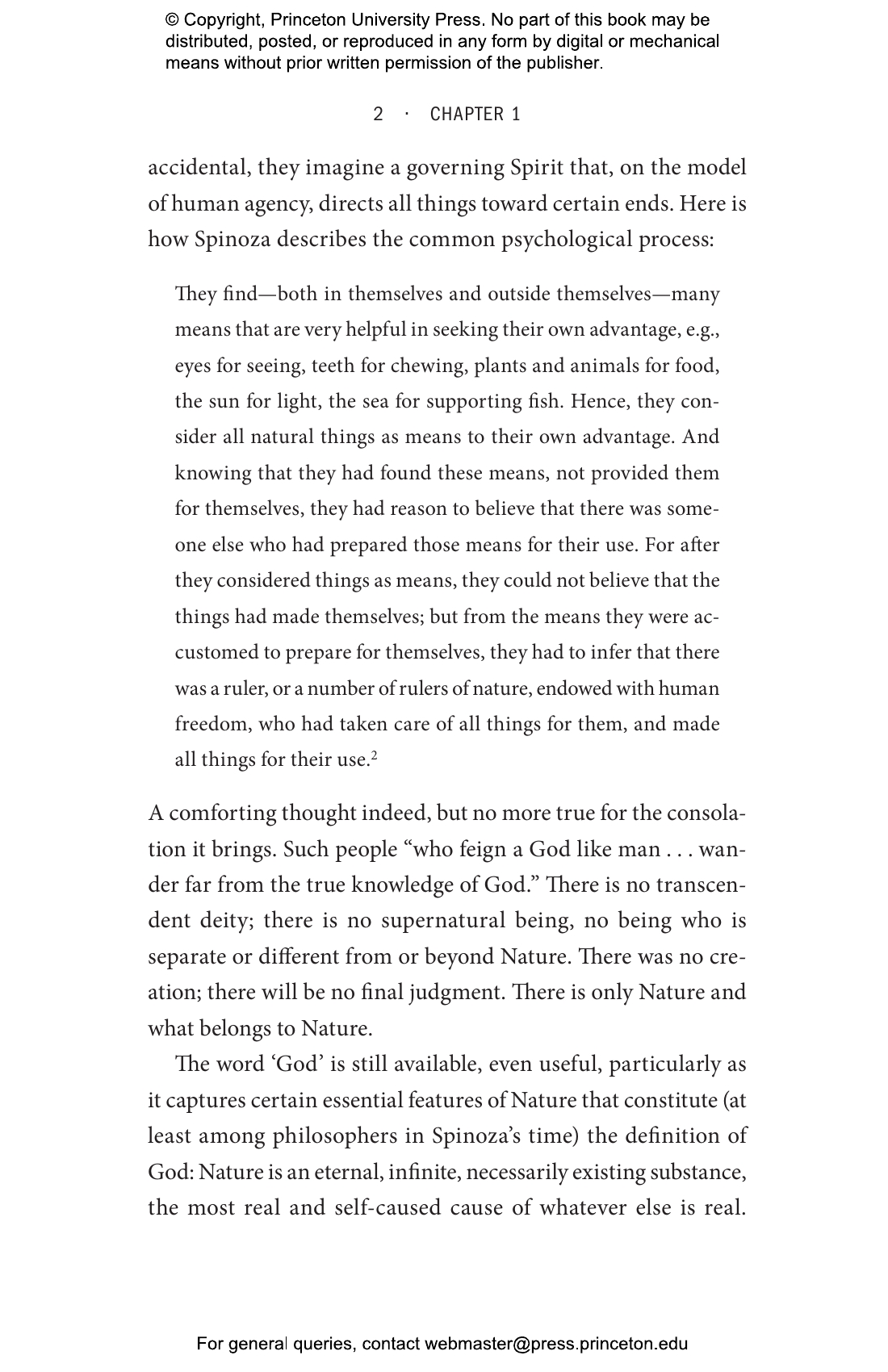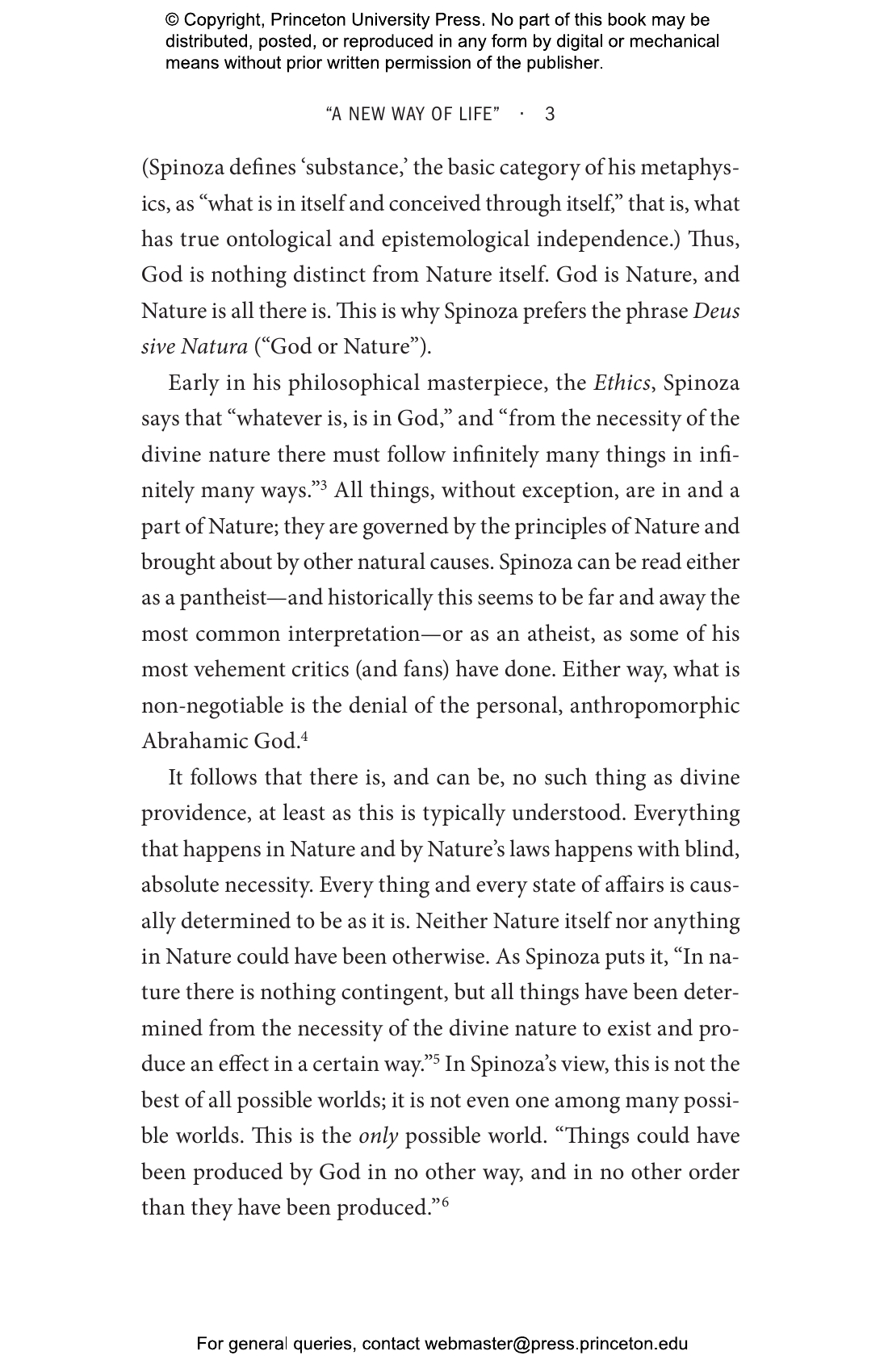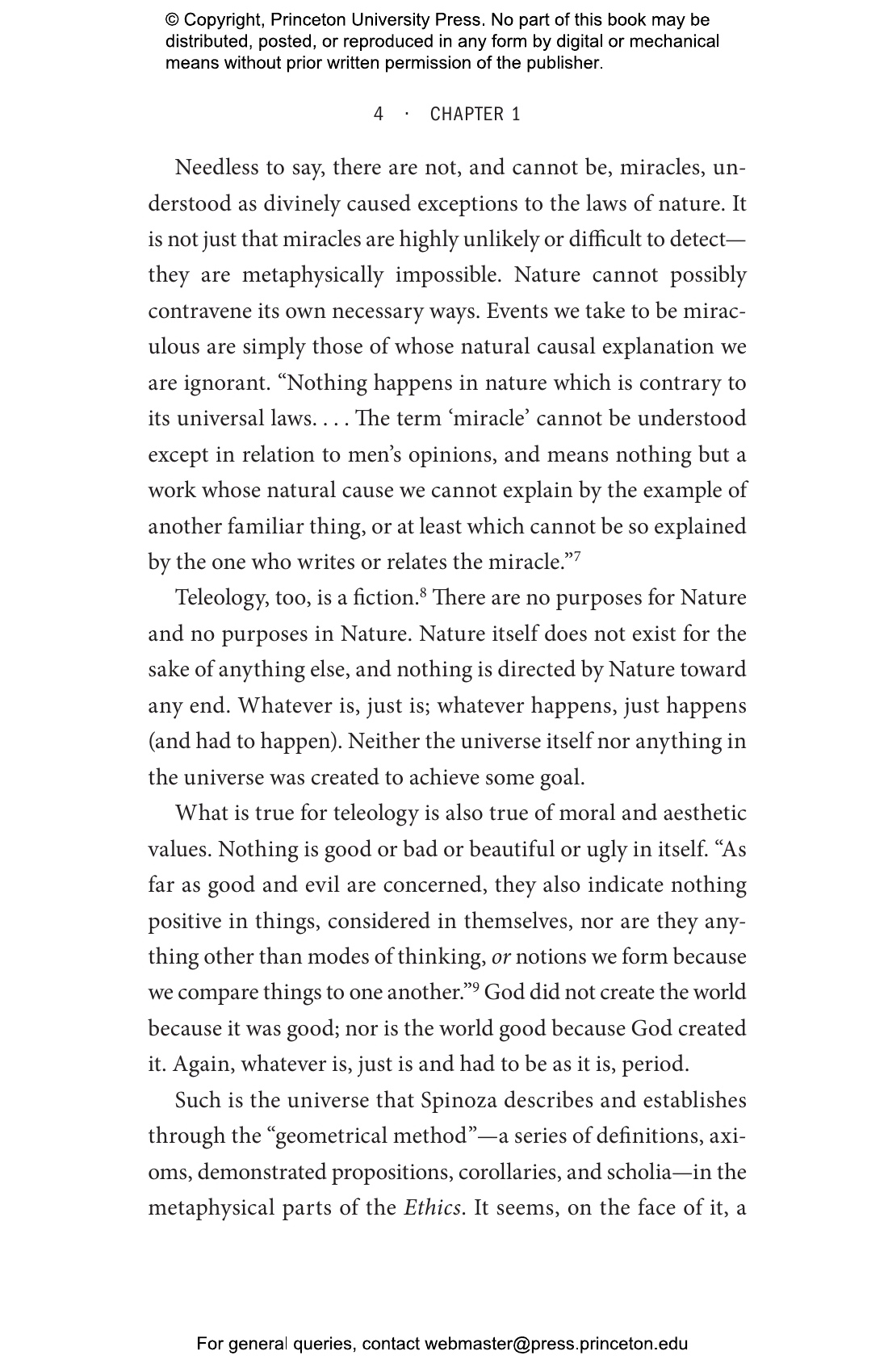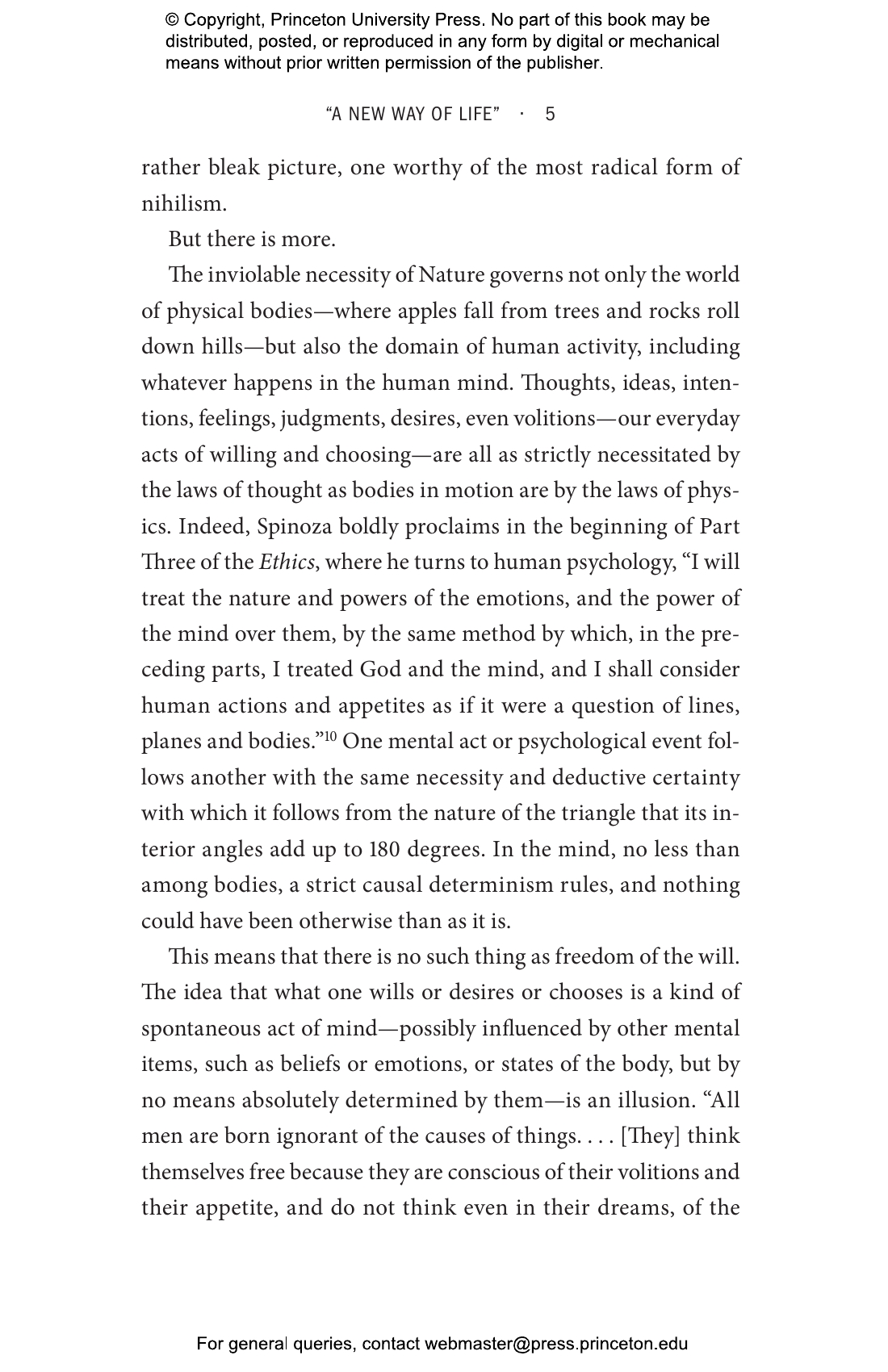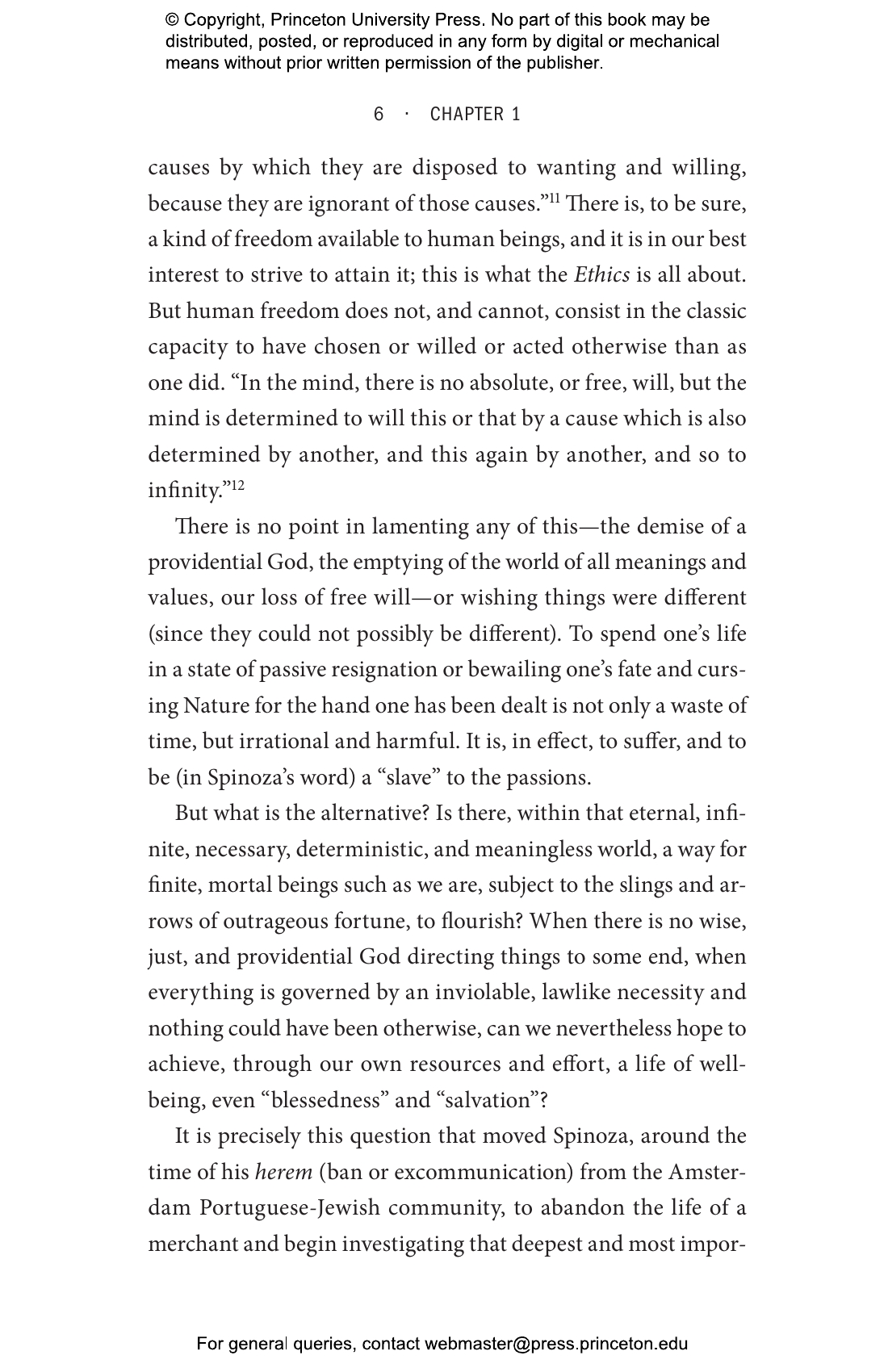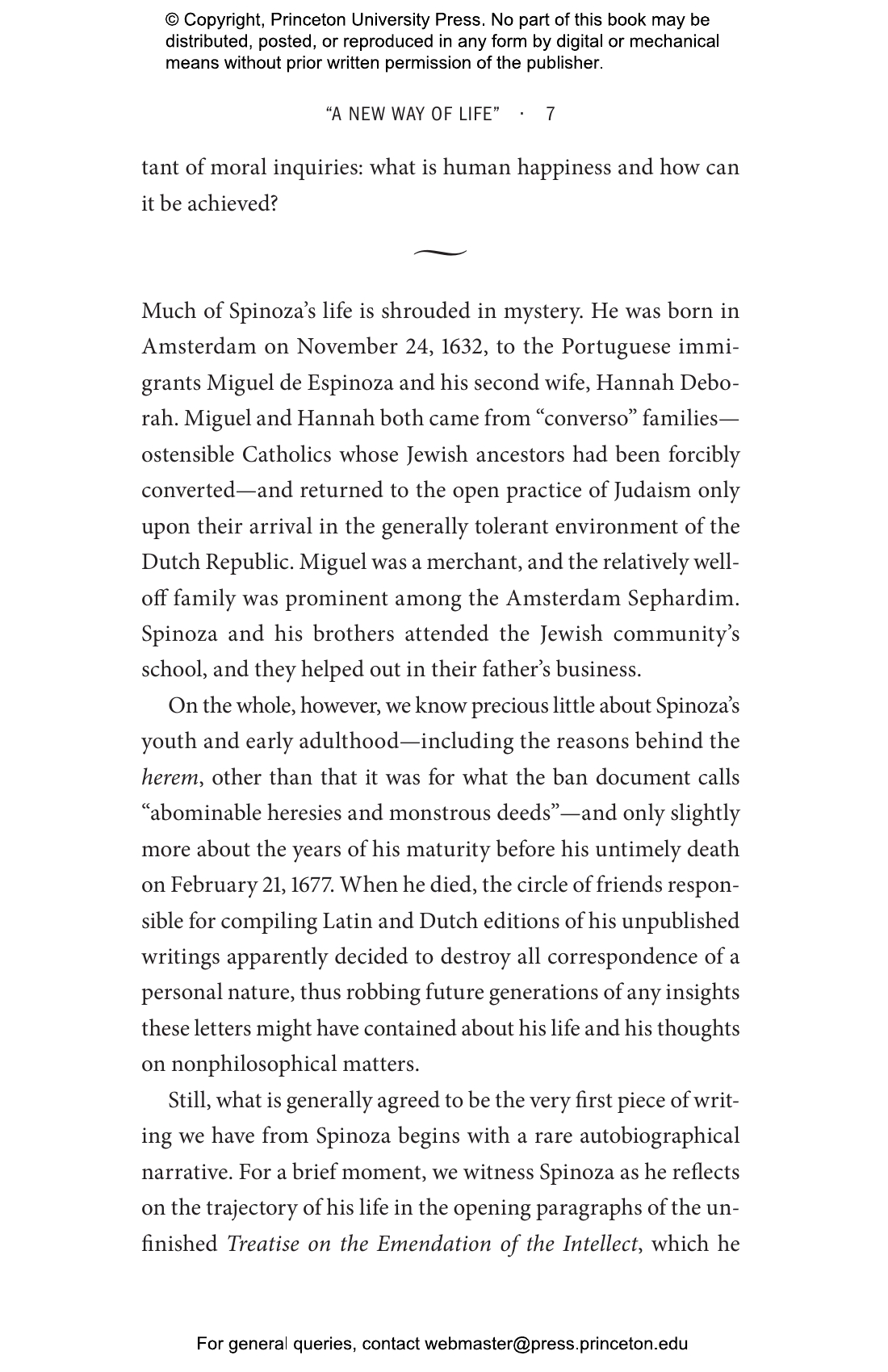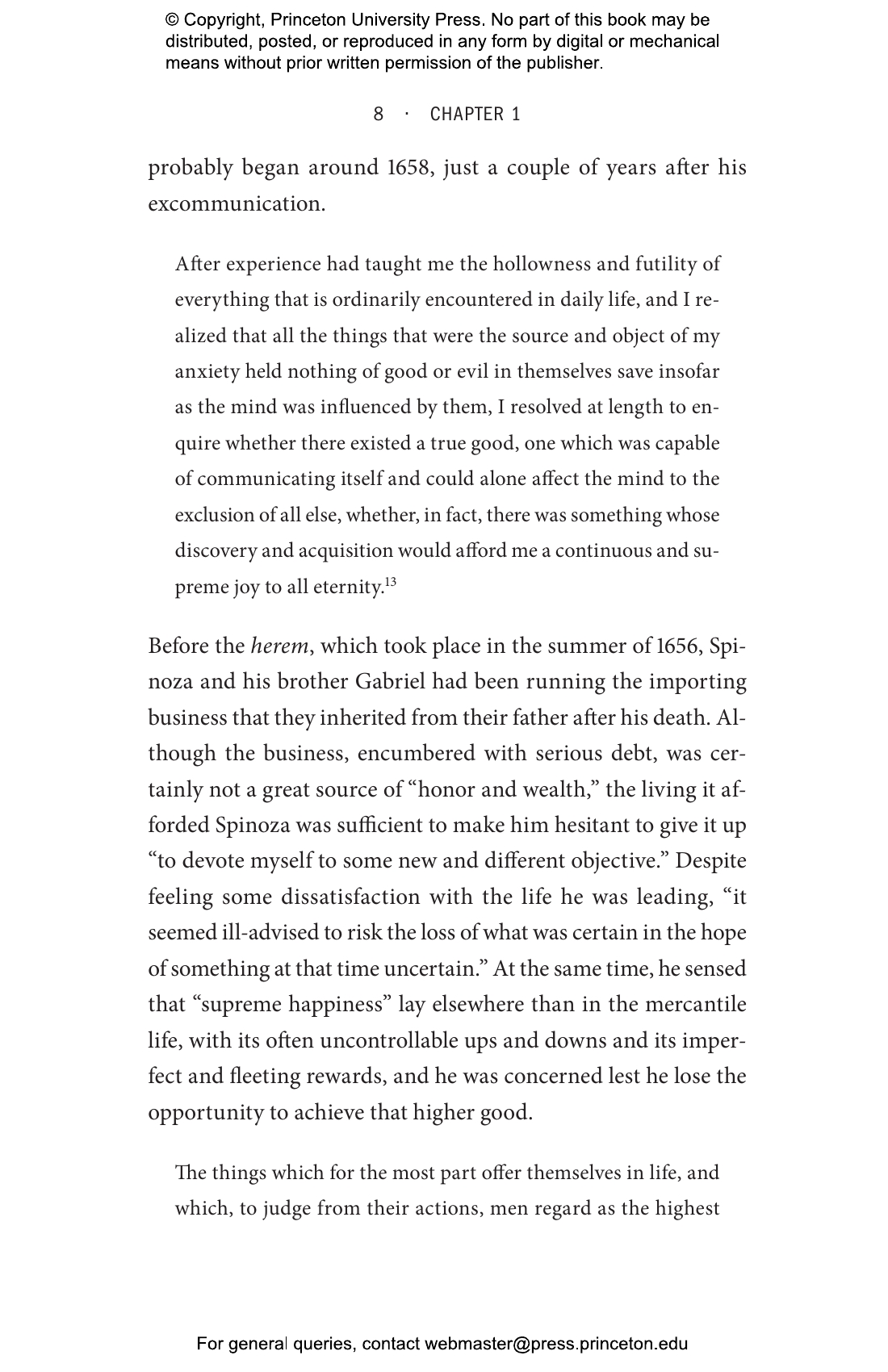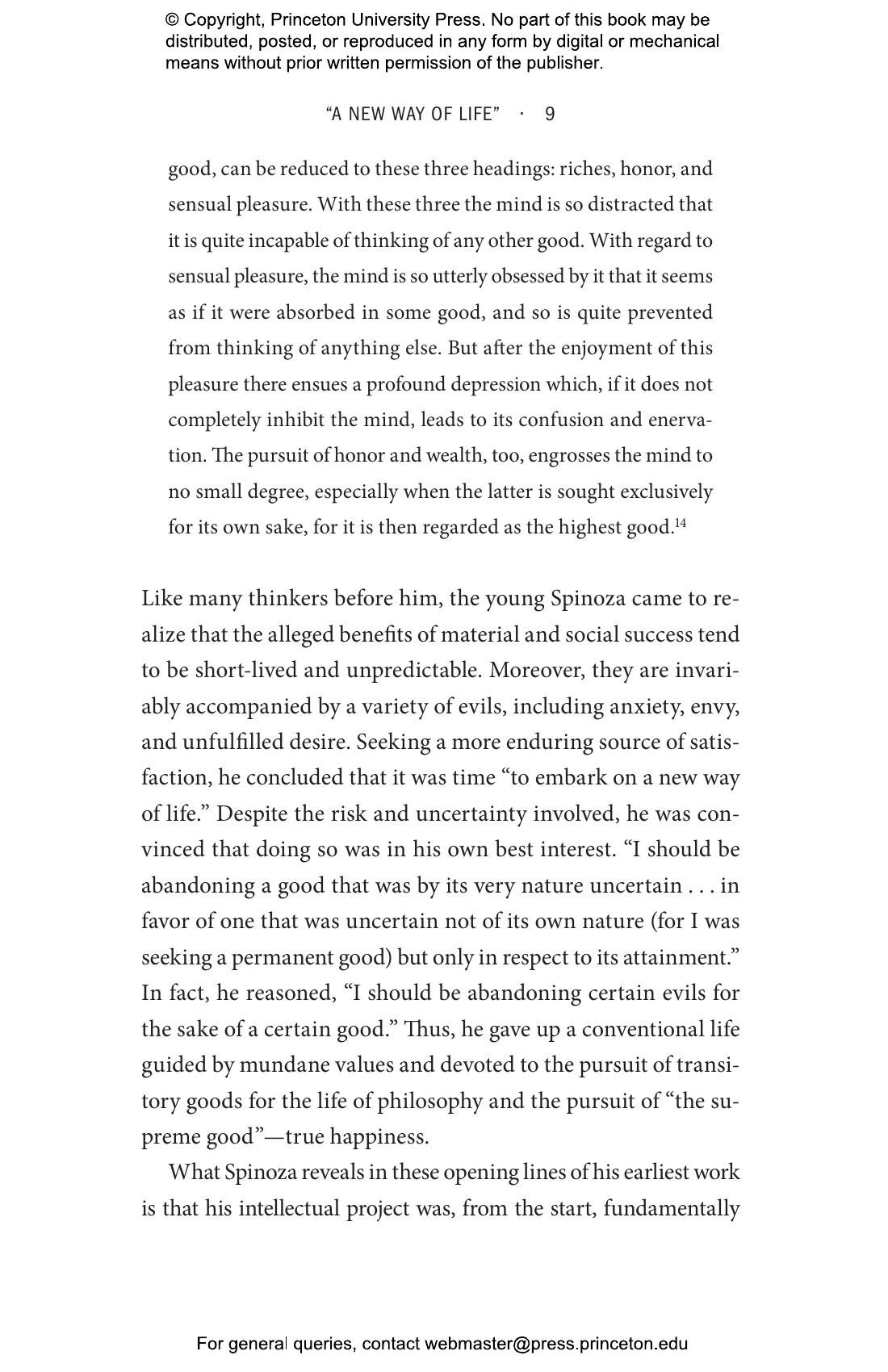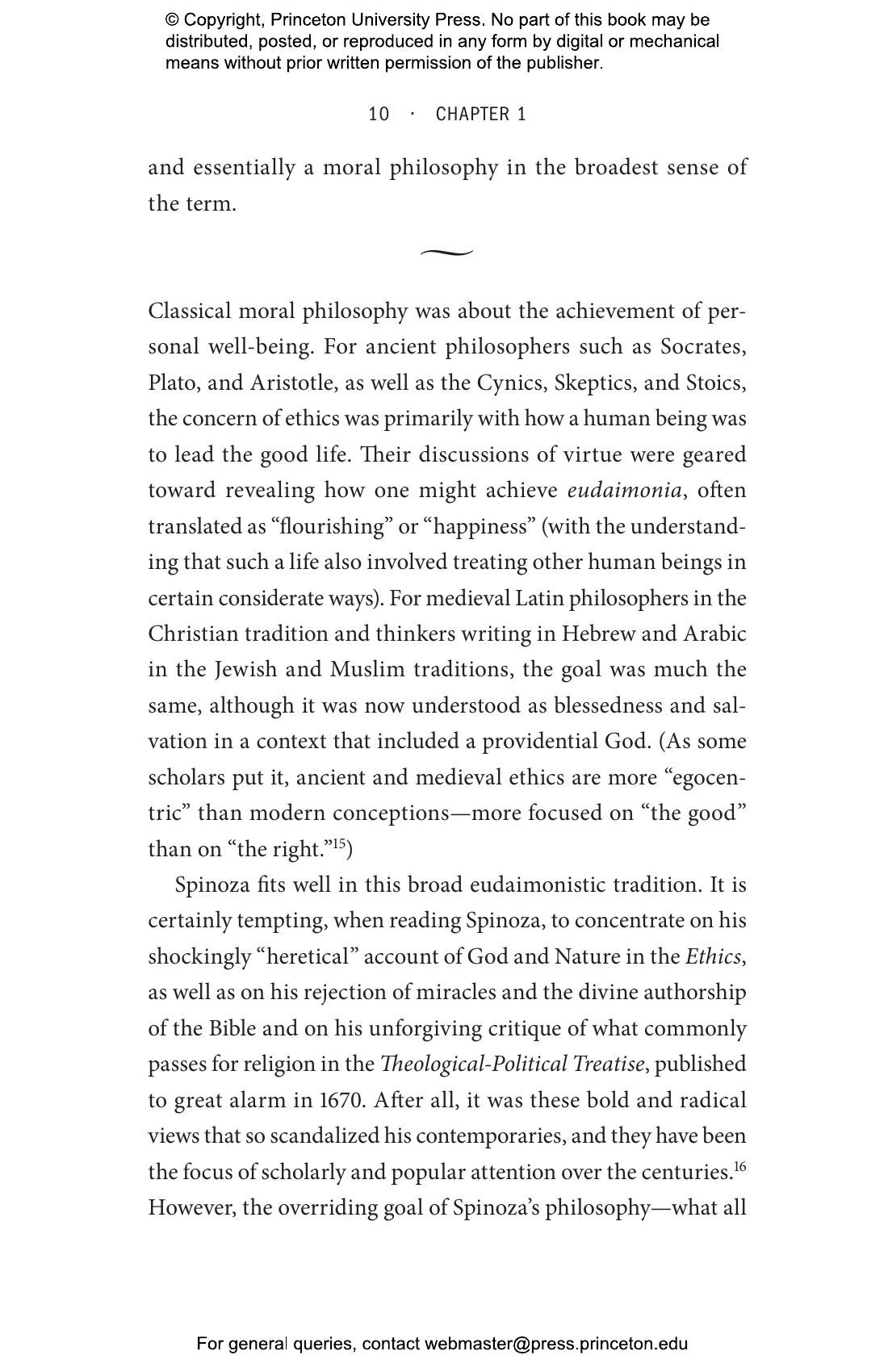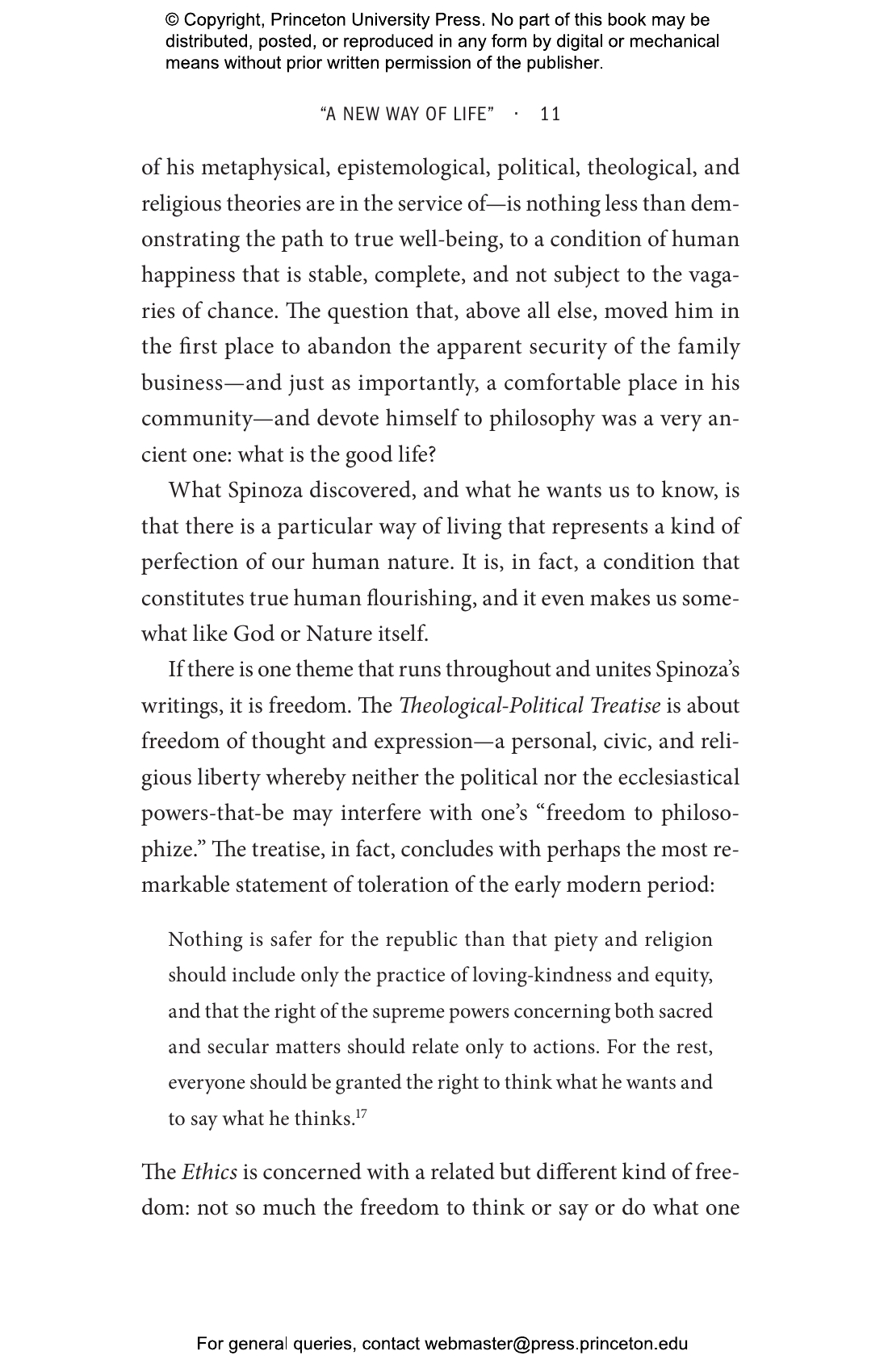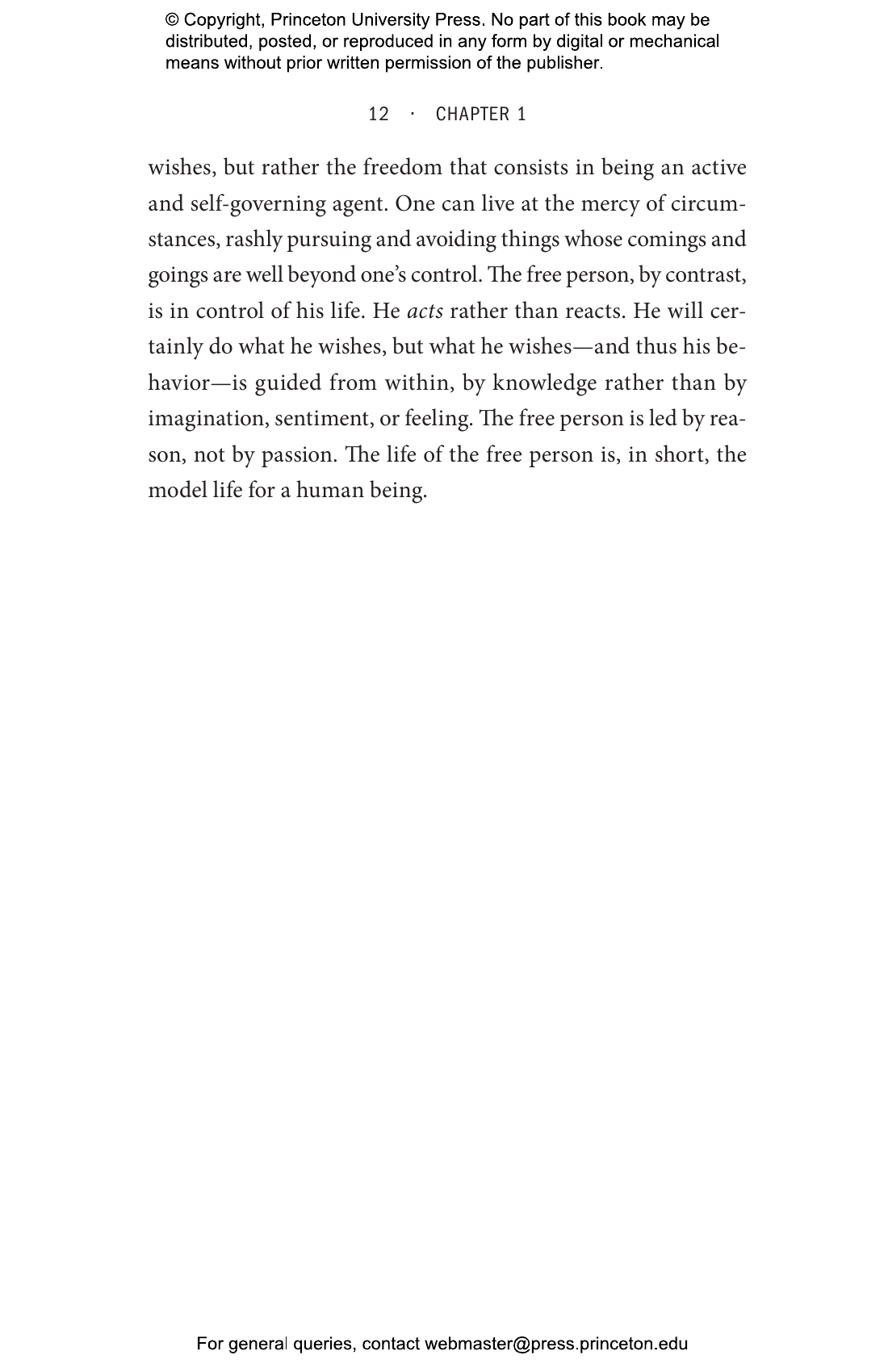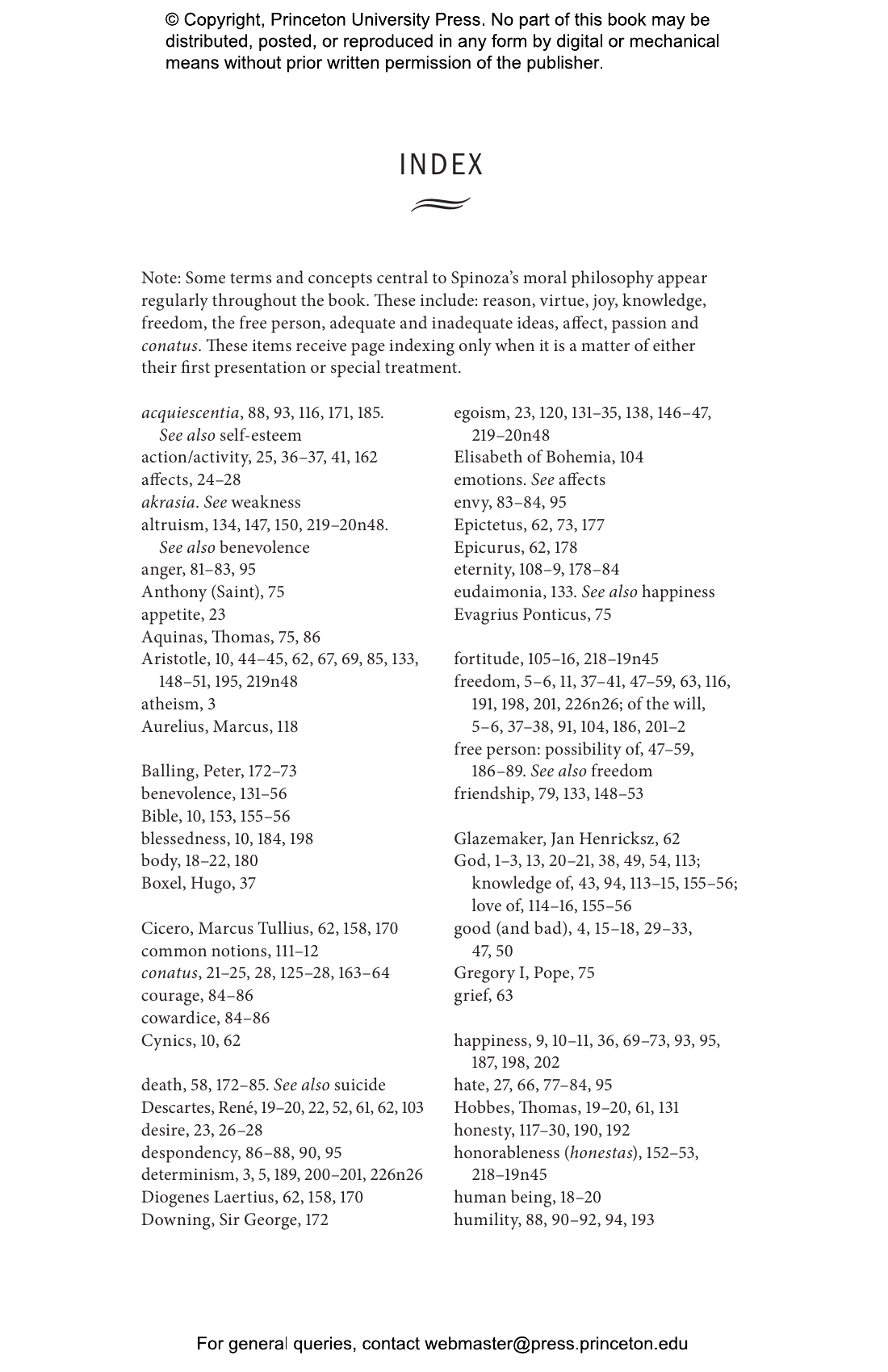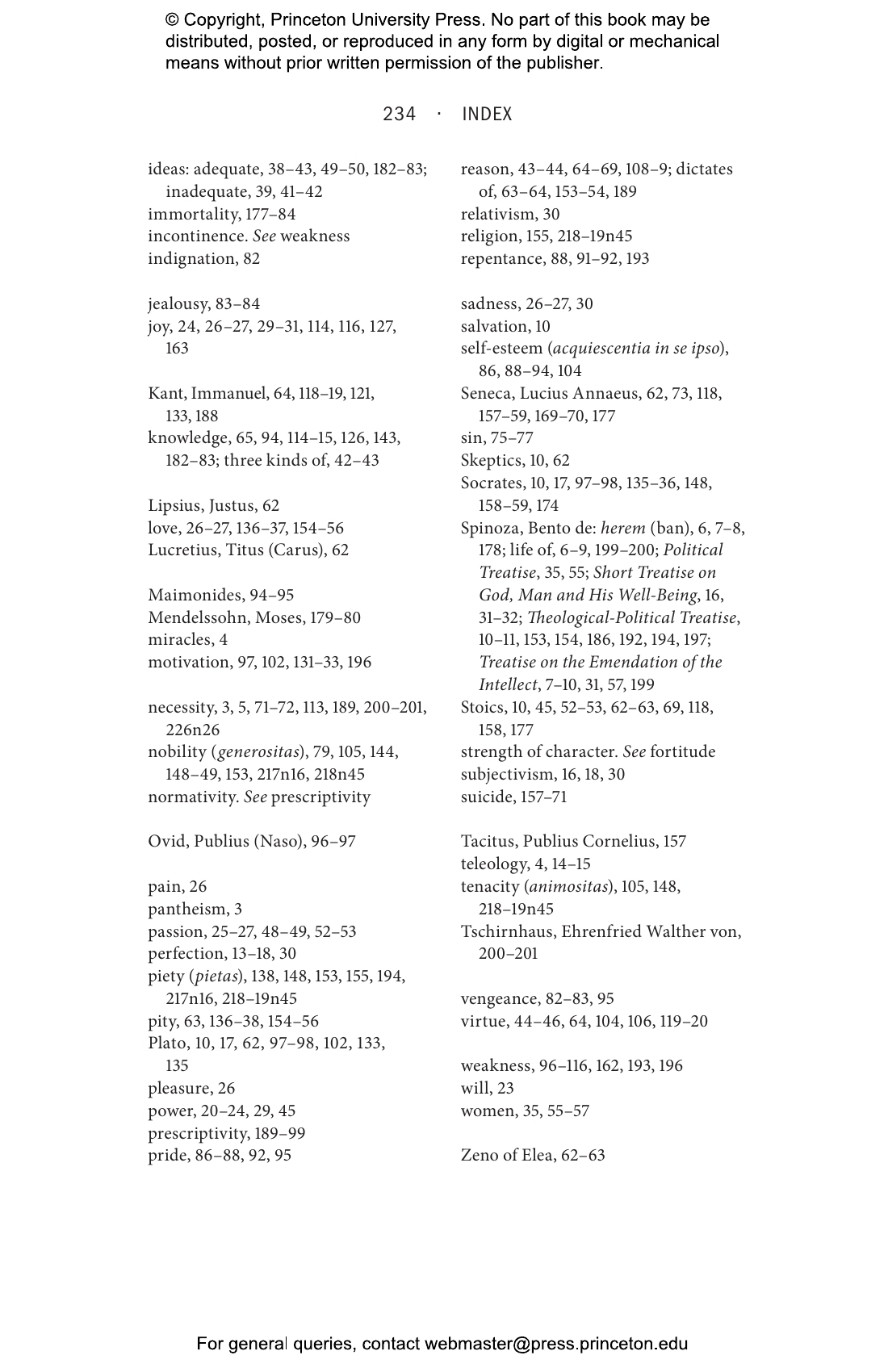In 1656, after being excommunicated from Amsterdam’s Portuguese-Jewish community for “abominable heresies” and “monstrous deeds,” the young Baruch Spinoza abandoned his family’s import business to dedicate his life to philosophy. He quickly became notorious across Europe for his views on God, the Bible, and miracles, as well as for his uncompromising defense of free thought. Yet the radicalism of Spinoza’s views has long obscured that his primary reason for turning to philosophy was to answer one of humanity’s most urgent questions: How can we lead a good life and enjoy happiness in a world without a providential God? In Think Least of Death, Pulitzer Prize–finalist Steven Nadler connects Spinoza’s ideas with his life and times to offer a compelling account of how the philosopher can provide a guide to living one’s best life.
In the Ethics, Spinoza presents his vision of the ideal human being, the “free person” who, motivated by reason, lives a life of joy devoted to what is most important—improving oneself and others. Untroubled by passions such as hate, greed, and envy, free people treat others with benevolence, justice, and charity. Focusing on the rewards of goodness, they enjoy the pleasures of this world, but in moderation. “The free person thinks least of all of death,” Spinoza writes, “and his wisdom is a meditation not on death but on life.”
An unmatched introduction to Spinoza’s moral philosophy, Think Least of Death shows how his ideas still provide valuable insights about how to live today.
Steven Nadler is Vilas Research Professor and the William H. Hay II Professor of Philosophy at the University of Wisconsin–Madison. His many books include Rembrandt’s Jews, which was a finalist for the Pulitzer Prize, Spinoza: A Life, and (with Lawrence Shapiro) When Bad Thinking Happens to Good People: How Philosophy Can Save Us from Ourselves (Princeton).
"Aiming to extract life lessons from the philosophy of Spinoza, this vibrant study focusses on the concept of ‘homo liber,’ or the free person, a supremely rational figure continually striving for power and virtue. . . . Spinoza’s work serves as a hopeful, timely statement of what the truth-seeking individual can accomplish."—New Yorker
"As an accessible introduction to the complex thought of Spinoza, it is a success."—Jeffrey Collins, Wall Street Journal
"If you want to become a better person, you ought to study the philosophy of Baruch Spinoza. That at least is the message of Steven Nadler’s delightful new book."—Jonathan Rée, Literary Review
"A helpful explication of [Spinoza’s] ideas about ethics, the afterlife, and human nature."—Kirkus Reviews
"If you want the clearest and most sympathetic introduction as exists to Spinoza’s ideas . . . then Nadler’s your man. This, his latest book, is a must-read for our present, troubled times."—David Conway, Jewish Chronicle
“Spinoza always has more to teach us, and Steven Nadler is among the best in laying out the riches of Spinoza’s thought in ways both accessible and inspiring.”—Rebecca Newberger Goldstein, author of Plato at the Googleplex: Why Philosophy Won’t Go Away
“Think Least of Death is a lively, engaging, and enjoyable introduction to Spinoza’s moral philosophy. Steven Nadler, a gifted writer, has produced a stimulating account of Spinoza’s answer to the question of what makes a good human life.”—Clare Carlisle, author of Philosopher of the Heart: The Restless Life of Søren Kierkegaard
“Steven Nadler sheds new light on Spinoza by taking him seriously as a moral philosopher. Particularly impressive is the way Nadler highlights Spinoza’s surprising and often overlooked contributions to traditional ethical subjects, such as death and suicide.”—Matthew J. Kisner, author of Spinoza on Human Freedom
